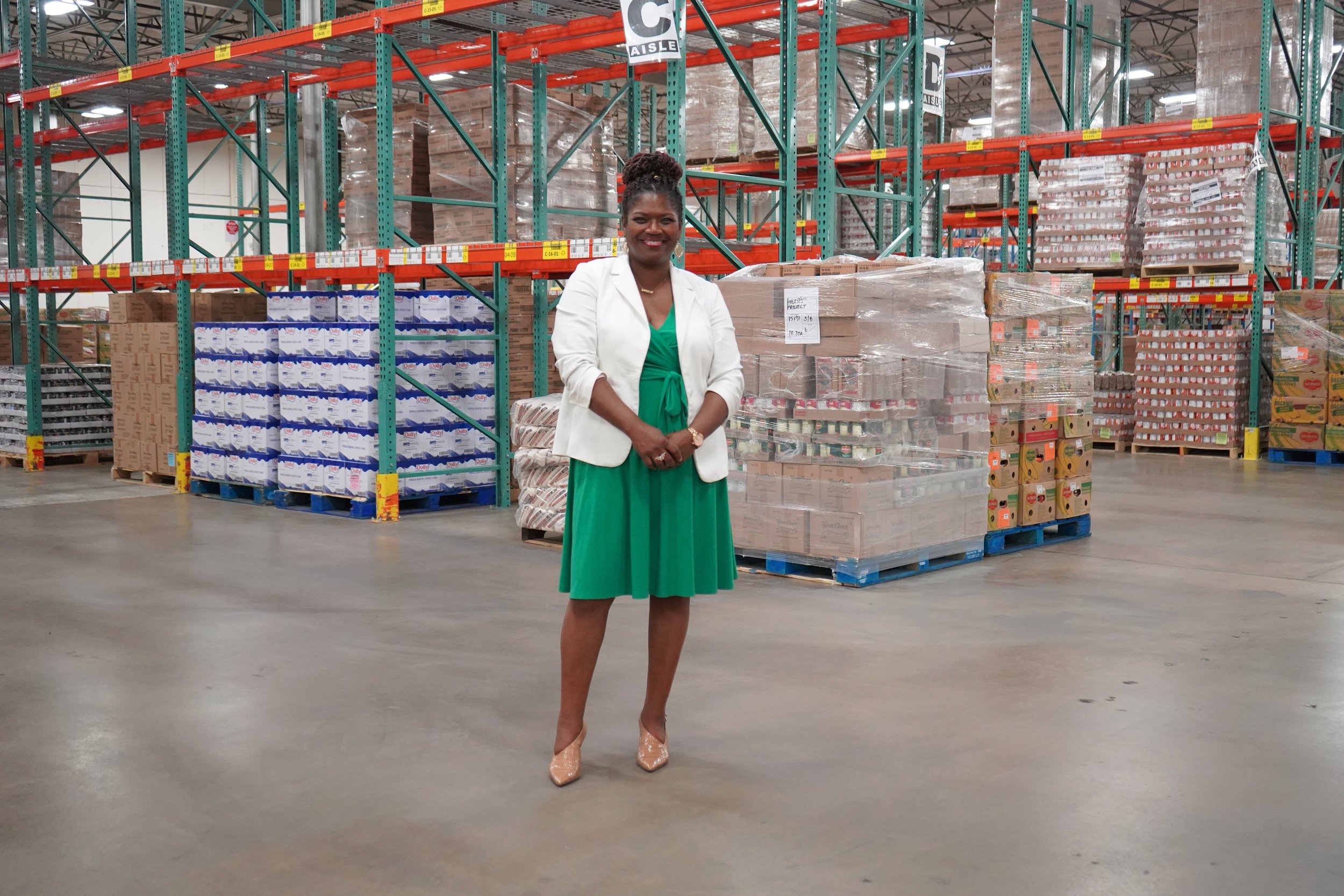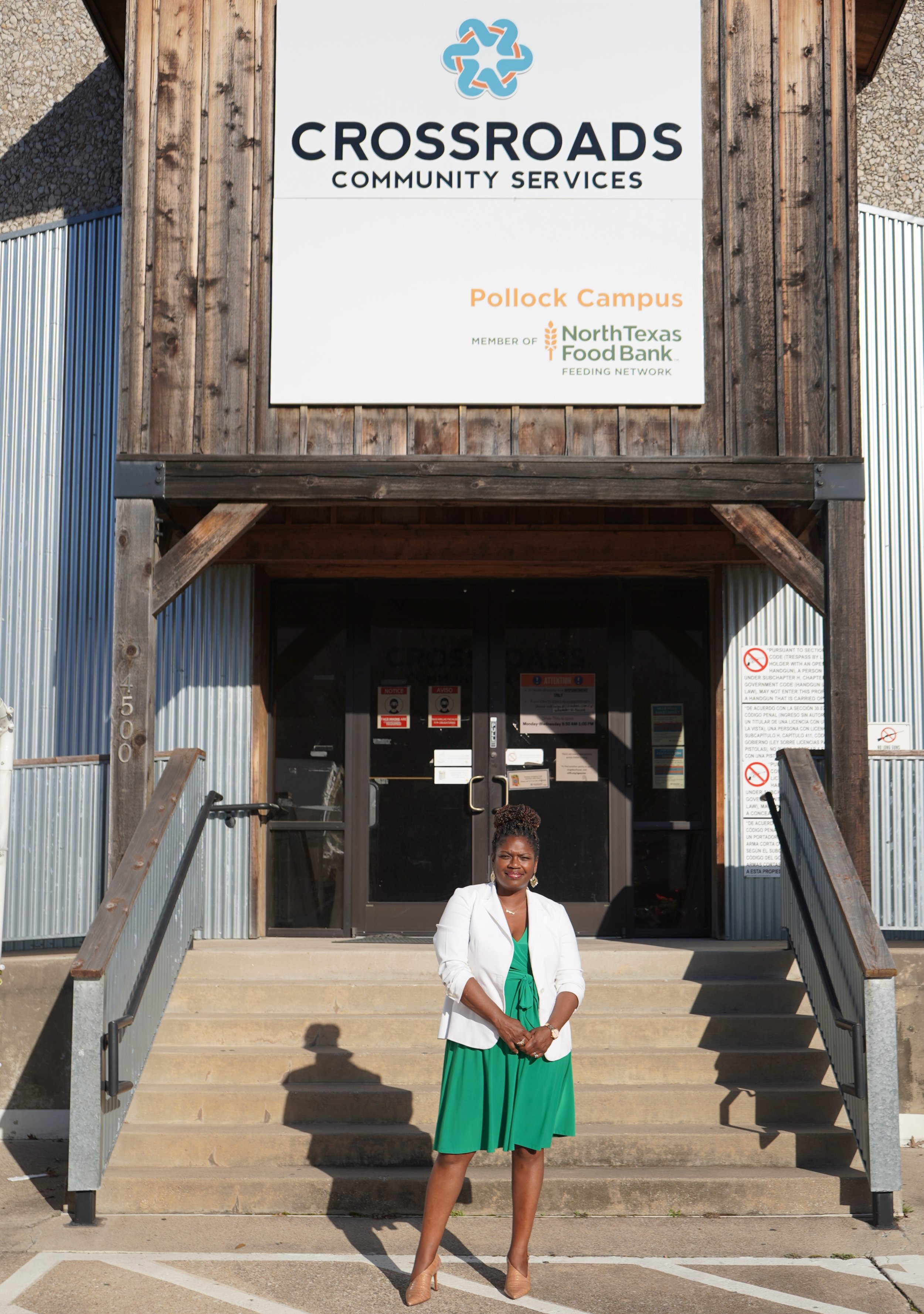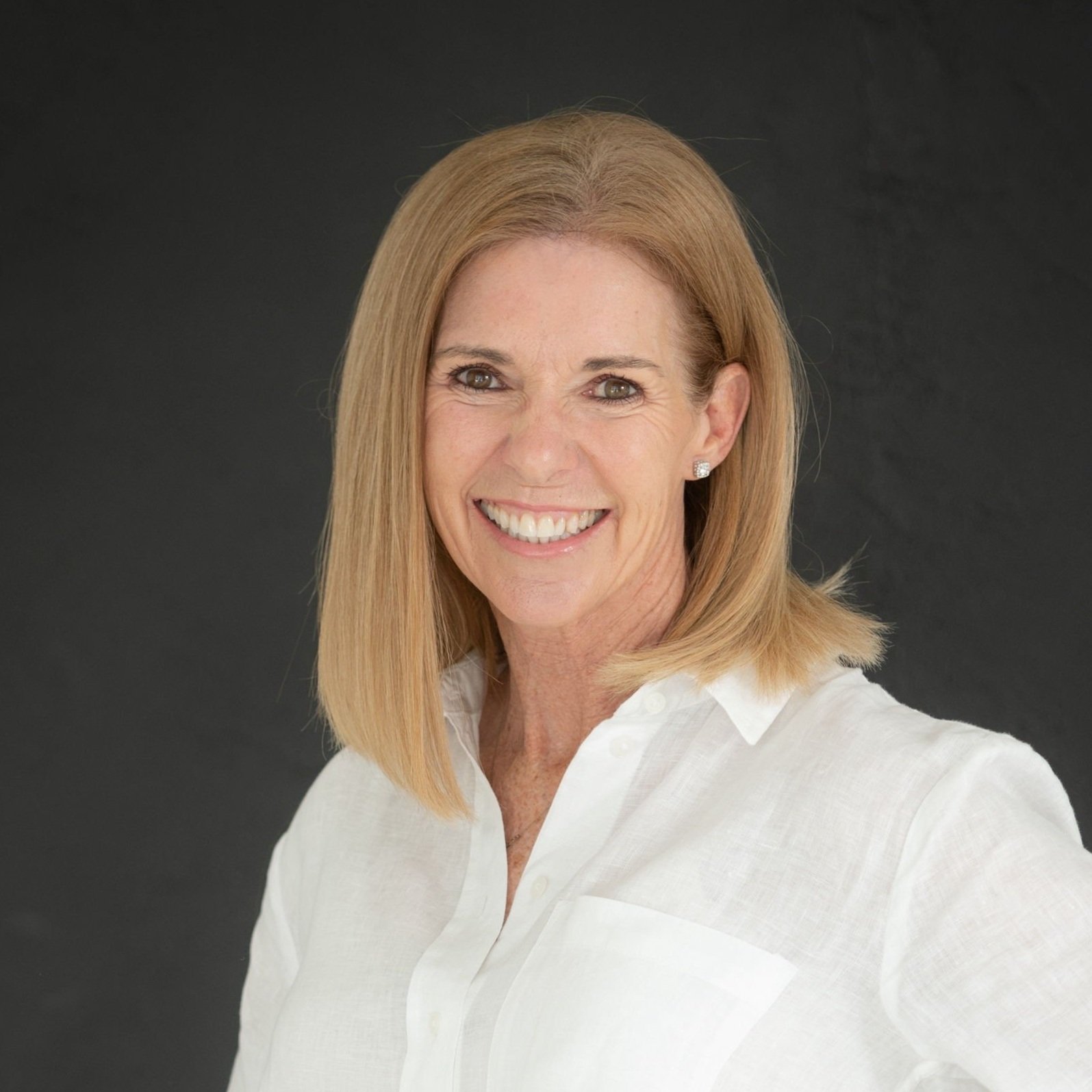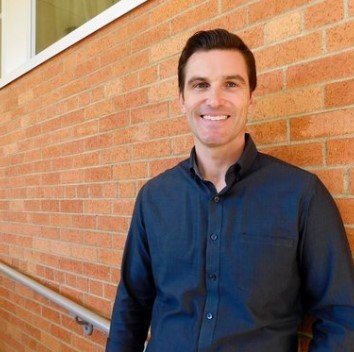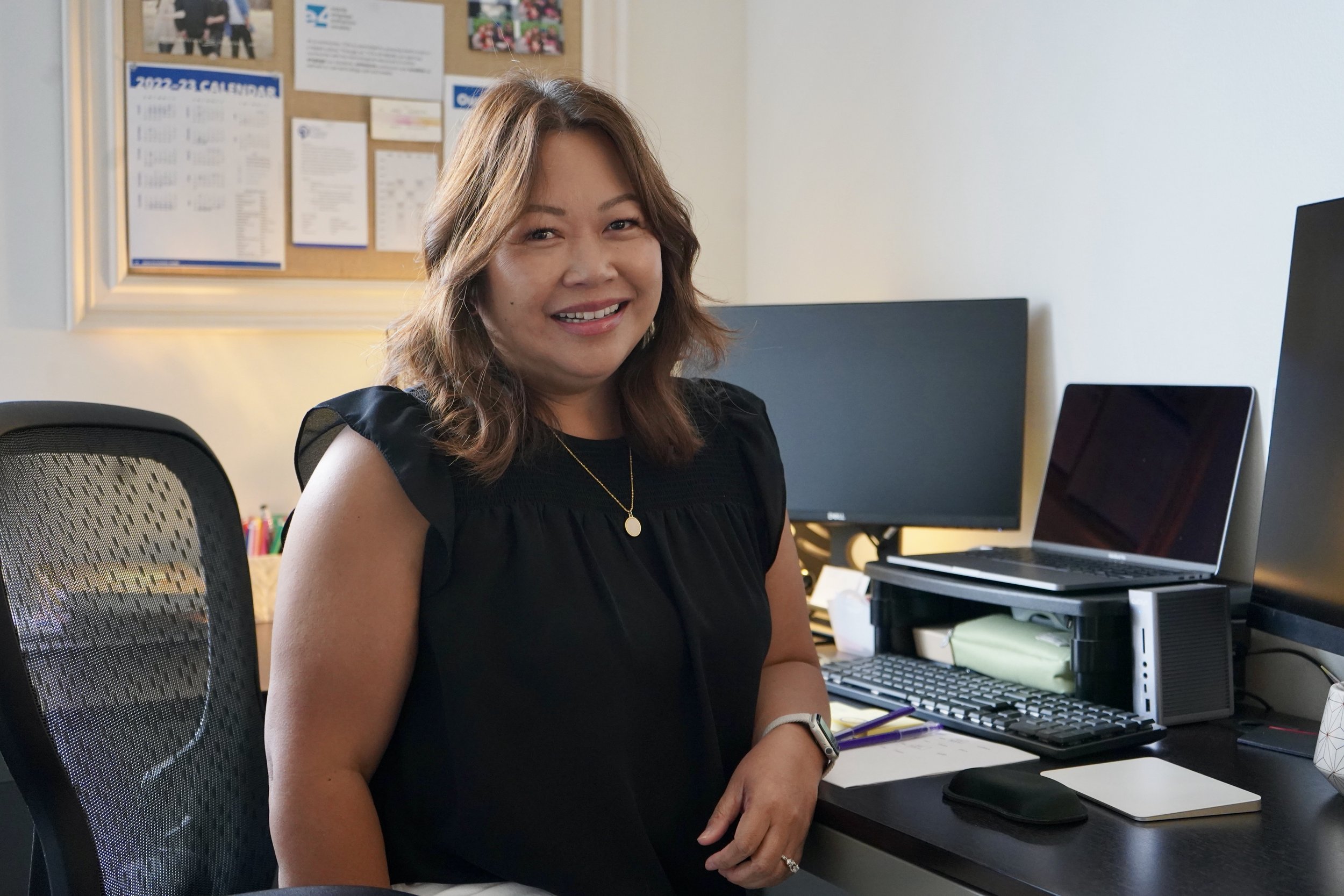Interview by Pam Higginbotham. Photos by Jan Osborn.
Benaye Wadkins Chambers is passionate about making a difference in her community. She was raised in Houston by a single mother working hard to make ends meet. Her own personal experience with food insecurity provides deep meaning to her mission of finding solutions for others going through difficult times. With her background in diabetes and mental health crisis intervention, education, and health organizations, she is combining her life and work experience to make an impact as President and CEO of Crossroads Community Services. She leads a progressive group that takes a unique and well-researched approach to the complex challenges of hunger and food insecurity. Dallas, usually perceived as an affluent city, shockingly ranks 47% above the national average in these areas. Through her leadership role at Crossroads, Benaye is determined to change that statistic and provide people who are experiencing hunger and food insecurity with life-changing solutions.
How did your journey begin with Crossroads and why was this opportunity a good fit for you?
My journey with Crossroads began in March 2021 on the heels of one of the most significant inflection points of time in the life of the organization. Just for a point of reference. In 2020, we distributed nearly 12 million pounds of food to over 150 community partners and 120,000 households. Triple the previous year’s numbers.
When I was approached about the opportunity to join this team, I was immediately intrigued. I knew of Crossroads and Jay Cole, the founding CEO for many years. After doing a little research, I learned that our organization was doing so much more, especially related to research to assess long-term food insecurity solutions. Now, this was exciting. We spend so much time talking about food insecurity with few conversations towards root causes and solutions. I like to find answers to problems. During my time working in health organizations, diabetes and mental health crisis intervention, we often heard the issue of food insecurity contributing to these health concerns. Additionally, working in education was further eye opening as to the impact nutritional food, or the lack thereof, plays in a child’s ability to learn. All of these experiences coupled with my desire to address the problem with solution focused efforts helped me know this was the next step for me. The Board agreed.
Are there any experiences in your life that led to your passion for taking on the challenges of hunger and food insecurity?
I was raised by a single mother for most of my childhood. Even during the short time she was remarried, we struggled financially. The church pantry was a life-line for us. My mother worked a full-time job with good benefits, but there were times it just wasn’t enough. I remember coming home one day and our electricity had been turned off. My mother was getting paid the next day. Still that night we ate, in the dark, canned beans and rice, because that’s what we had. We were able to cook because we had a gas stove but otherwise, we went to bed, woke up the next morning, and dressed for school in the dark. We would live like this for a few years with help and support from our family and the church. I get it. Watching my mother struggle and humble herself over the years to take care of her girls is the fire behind my fight for doing right and good through my work as service to my community and other women like her. She is my real life Wonder Woman.
What unique approach does Crossroads take to address the issue of hunger and food insecurity and to provide solutions?
We believe the consistency of nutritious food is the key to addressing the issue at its root. In his recent visit to Crossroads, Mayor Johnson said of our approach, “its basic…like Maslov’s hierarchy of needs. You can’t address the other issues until you take care of the food needs.” Food, clothing and shelter are the basics. Have you ever noticed how food always comes first in this list? Food insecurity is defined as the inconsistency of available nutritious food. Crossroads’ approach is to encourage monthly visits for our clients. Our research has proven that this monthly provision in coordination with an individual’s or family’s SNAP benefits helps ensure they have food for a longer period in the month and that the food has more nutritious value.
How is Crossroads utilizing technology to meet the needs and address food insecurity, if at all?
In the fall of 2020 as we all Zoomed our way through meetings and purchasing our groceries through various grocery apps, Crossroads began to see how this process could benefit our clients and increase the access for our working poor families. As part of our standard intake process, clients are guided by a volunteer through our Salesforce platform to participate in our research survey and order their food from a live inventory. Once their choices are selected they grab a cart and go shopping for their selections. Over the last year and half, we, and our partners Salesforce and Argano Keste, have taken this concept and transitioned into the Virtual Pantry App! To date, we have tested this process of clients ordering their pantry needs online from their home computer or mobile device. Once the order is received by our team of staff or volunteers, it is fulfilled, then loaded into their cars upon arrival. Now a single mother working two jobs doesn’t have to wait in line during work hours. She can select the time best for her schedule to pick up her food items, with no substitutions because again, our inventory is live at all times.
We are taking service with dignity and equitable access to nutritious food to the next level! Over the next several months we will migrate as many clients who are interested to this new platform of pantry service. We will also make the platform available to partner agencies to include training and data support. This is sure to revolutionize the way pantry programs connect with clients, distribute food and effectively address the issue of food insecurity.
How was the CARE team organized and what role do they play in how the needs of the community are met?
The CARE team was created by two passionate women, Dr. Tammy Leonard, Interim Provost at UD and Dr. Sandi Pruitt, Associate Professor at UTSW. Dr. Leonard and Dr. Pruitt wanted to collaboratively work with community organizations to address the primary issues with attainable solutions for low to moderate income communities using evidence-based research. Ten years ago, Dr. Leonard approached Jay Cole with the opportunity to partner to change the narrative and design a solution-focused way to address food insecurity. Over the years, we have modified our work based on data from these projects and now, we are working towards a model that can be scaled for other pantries.
Covid has changed and impacted so many lives. How did it impact Crossroads and what course of action was necessary during these times?
Well, COVID has forever changed everything. We keep saying “when we get back to normal” but Crossroads has and continues to adapt to what has become our “new normal.” At the onset, Crossroads made the pivot overnight to “drive through” distribution of food to clients. Where once we had a waiting room of up to 60-70 clients waiting to order their food and shop in our client choice pantry, suddenly there were upwards of 300 cars in line, daily. We went from receiving 2-3 deliveries from NTFB to nine, for our pantry and partners. The volunteers were replaced by the National Guard and temporary workers. There was no break for the Crossroads team. While thousands were sheltering in place, our staff was showing up five days a week and two Saturdays a month to meet the need.
How does Dallas compare to other cities with hunger and food insecurity?
We tend to measure by counties rather than cities and Dallas county is seriously impacted by hunger. The rate of food insecurity in Dallas County is 47% higher than the national average. 1 in every 5 kids in North Texas is food insecure. 1 in every 10 people in Dallas County has diabetes. 1 in 5 people in Dallas County don’t have health insurance. This is one of the highest rates for a major city in the country. These are astounding facts.
What is the greatest challenge you face as an organization?
Our great challenge and opportunity is operational scaling. Crossroads moved into our warehouse in 2019, growing from 10,000 square feet to 72,000 square feet overnight. Thinking we would have time to get our bearings and scale slowly to our new space, capacity for distribution, and increased need of our community, we were hit with the COVID demand. That demand has not waned as we once thought but remained steady and growing. As a redistribution partner for NTFB, we are now serving 141 partner agencies, soon to increase by 20%. As we provide for their food needs and our own pantry clients, we conduct our own research with highly recognized partners, and with the expansion of our virtual pantry platform, these efforts require more resources to deliver highly effective outcomes. My task is to build our organizational infrastructure to match our output and expected outcomes while continuing to offer efficient and excellent service. My partners in this are a strong Board looking to grow with expertise in key areas, staffing leadership to oversee and implement key metrics, and passionate volunteers to help deliver program services. Now is a good time to join Crossroads and there are many opportunities to partner with us, the invitation to join and have a seat at the table is open.
How has serving as President and CEO of Crossroads impacted your life?
I am sleepy, LOL! In the past year, shortly after accepting the job, I bought a house in need of renovation, tore my ACL and remarried! I am the mother of a very precocious 5th grader and an active member with his school and our church. Through it all, this role has energized me. I am absolutely thrilled at the work we are doing. It has given me a chance to apply all of my work and life experience. I told several people upon my arrival, “I feel like my whole life and work to date has prepared me for this role.” And, I need a nap.
When looking into the future of Crossroads, what do you hope to see?
The future of Crossroads holds answers and solutions. I expect to see us partnering around a table with all the right stakeholders to use our research, community insight and client feedback to design the model that gives a pathway for individuals and families to move from food insecurity to household sustainability. It can happen. Our research is proving that possibility every day.
What volunteer opportunities are available to help Crossroads address rising hunger and food insecurity in Dallas?
We need volunteers! Our volunteers are the lifeblood of the work. Volunteers allow donor funds to serve our clients needs instead of staffing. Individuals, families and groups can volunteer to make food boxes as we keep our drive through service open two days a week; sort food and household items donated through the Kroger Reclamation Program for our partners; work one-on-one with clients as we have reopened for in person shopping; and serve as Virtual Pantry Health Volunteers or Pantry Captains. In every way, volunteers make sure that every dollar donated to Crossroads makes the maximum number of meals for individuals and families in our community.
To learn more about Crossroads Community Services or to volunteer, go to www.ccsdallas.org.
Featured
Pam is a creative soul who has a passion for telling people’s stories. Spotlighting inspiring people doing good in the world is truly an honor for her. She enjoys spending time with her rescue dog and guinea pig, Rocky and Peppy, and nurtures her love of photography by adding to the 98,112 photos already on her iPhone.
Featured
more good stories
Featured
Josh Taylor was deployed to the Middle East, flying missions into Iraq, Afghanistan, and Syria, when he realized that many of the people he spoke to were divided. It was 2018, and Josh had already been in the Armed Forces for over ten years, but he wanted to find a cause that could unite the nation. “Flying 65,000 miles and spending 300 hours in a machine gives somebody a moment to think,” Josh says. Eventually, he found his answer– our youth, and alongside them, our educators– have the strength to be the foundation for our country.
When Lisa Wong launched the STEM program at Trinity Christian Academy, her goal and passion was to teach the kids that they can use STEM fields to bless others in the world around them. She views her time as an investment in the future.

